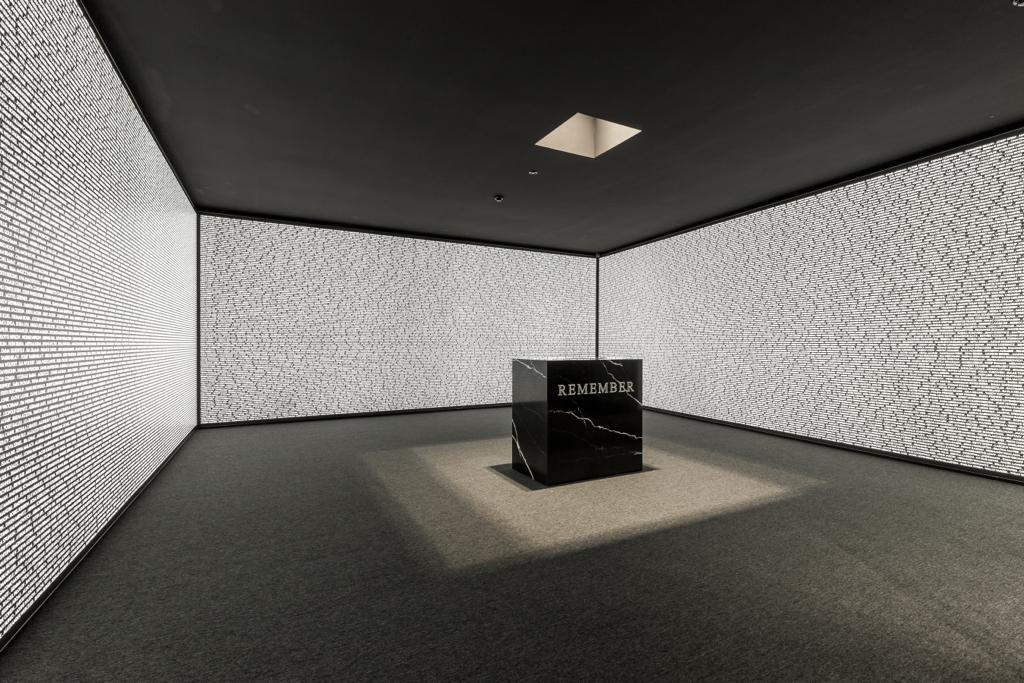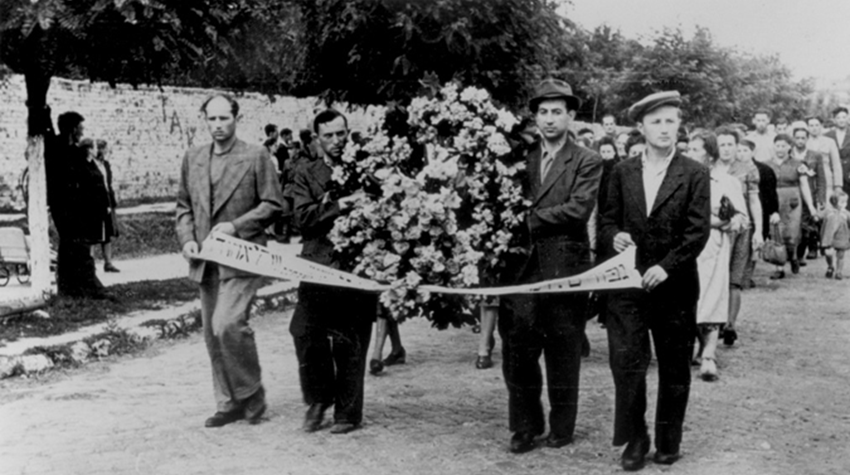By Gabriel Senderowicz
(January 29, 2023 / JNS) On Jan. 27, the United Nations Secretary-General Antonio Guterres made the following remarks at the annual U.N. International Holocaust Remembrance at Park East Synagogue: “Throughout millennia, the persecution of Jews was a mark of rotten societies. My own country, Portugal, is no exception. At the turn of the 16th century, King Manuel I signed the Edict of Expulsion of all Jews who refused to convert. It was a cruel crime.”
“It is a source of great joy that descendants of expelled Jewish families have since exercised their right to regain Portuguese nationality,” he added. “And it is a source of great honor that Lisbon will soon have a new museum dedicated to Portugal’s long and rich Jewish history—the Tikva Museum. The painful truth is: even today, antisemitism is everywhere.”
On the day these words were spoken at the Park East Synagogue, around 1,000 children and teenagers gathered at the Holocaust Museum in Oporto to light candles for the victims and request the return of Jews to Portugal. At the Holocaust Museum, we saw young people who truly respect the Jewish community, not politicians with mere speeches of convenience.
If Guterres wanted to see the return of Jewish life, traditional Jewish religion and Jewish culture to his country, he would have spoken about the growth of the Portuguese Jewish community in recent years. There is the largest Chabad Center in Europe (in Cascais), the synagogues of Oporto, the Oporto Holocaust Museum, the Oporto Jewish Museum, the most awarded Portuguese film ever—which is about the Inquisition in Oporto—Oporto’s restaurants, hotels and achdut centers and even Oporto’s new Jewish cemetery.
Guterres, however, did not speak of Jewish life but of death, of the “Jewish heritage” in the future Jewish Museum of Lisbon that until today is nothing more than a drawing on paper.
In addition, Guterres stated, “It is a source of great joy that descendants of expelled Jewish families have since exercised their right to regain Portuguese nationality,” but he forgot that this law has already been destroyed by his own Socialist Party in a manner reminiscent of Soviet antisemitism. The party has sought to wipe out all genuine Jewish forces in the country, the only strong Jewish community, the influx of Israelis and the alleged “threat” posed by wealthy Jews.
Despite its official atheism and rejection of Judaism, the Soviet Union avoided destroying all its synagogues and Jewish communities, lest it attract bad international publicity. It maintained more than 20 synagogues as partners of the regime, such as the Great Synagogues of Moscow, Leningrad and Odessa, while destroying their strong communities.
In Lviv, Kharkiv, Chernivtsi, Bobruisk, Smolensk and hundreds of other cities, strong synagogues and communities were shuttered, one by one, always in the same way. The Soviets used the press to associate the synagogues with allegedly malfeasant business dealings. It described such dealings as immoral or illegal. It did so in order to destroy these Jewish organizations as promoters of Jewish life.
The Jewish Community of Oporto is facing something similar. In March 2022, it was the target of a large-scale police action, which humiliated the community both in Portugal and the world. The charge was that the Community granted certificates that affirmed the Sephardi heritage of anyone who sought Portuguese nationality and was willing to pay for it. Lisbon prosecutors and police searched Oporto’s synagogue, the Jewish Museum and the houses of Jewish leaders. The chief rabbi was arrested solely on the basis of anonymous denunciations that accused him of committing technically impossible thefts, corrupting registry offices he never visited and being corrupted by two billionaires he did not know, one of whom was certified by the Jewish community of Lisbon and the other by their Jewish community of origin. Worse still, the Oporto Police had been presented with one of these anonymous denunciations the previous year, concluded it was baseless and refused to open a criminal investigation.
In September, the Court of Appeal reached the same conclusion as the Oporto Police: The entire process was “based on nothing.” Referring to the charges as “a generalization without factual basis,” the Court asked, “How can someone defend themselves only from generalities?”
Prior to the Court of Appeal’s decision, the Jewish Community of Oporto filed a complaint against the Portuguese authorities with the European Public Prosecutor’s Office. With legal support from the European Jewish Association, the complaint condemned the use of state powers against Jewish community officials, persecution of benefactors of the Jewish community in general, dissemination of antisemitic tropes linking Jews to financial malfeasance, a defamation campaign that dragged on for months, use of the media to mobilize public opinion against the Jewish Community and the exploitation of unscrupulous persons in order to falsely incriminate targeted individuals.
There is evidence that the judiciary establishment was used to achieve political ends, favors were exchanged between powerful elites, conspiracy theories were spread, a young French Jew targeted with a death threat, at least three break-ins at law offices and private homes, false accusations of drug trafficking and illicit connections to Russian interests, the use of forged anonymous denunciations and a coordinated defamatory campaign involving some half-a-dozen journalists. No one from the community escaped this campaign, from religious and secular leaders to the museum curator to the doorman. They all found their reputations and honor severely damaged.
In Jan. 2023, on the occasion of its centenary, the Jewish Community of Oporto published a book about its history in which it announced the “end” of the ongoing legal process. The book, now published, has already been distributed to relevant governments and international institutions. It notes that “some newly arrived Jewish families to Oporto have already started to leave. Sooner or later, a time will come when the Community’s prayer rooms, of which today there are three, will be empty, and the museums, which are full today, will die. The sound of Jewish rituals now sung in unison by hundreds of people and the friendly and free welcome of thousands of school classes will have sunk into oblivion. The population throughout the country will continue to point to the large synagogue building as a symbol of materialism, money and bad feelings.”
Anyone who knows the history of the Jews knows that a Jewish community, collectively or individually, is always accused of “endangering the homeland,” “exploiting national assets” and “abusing the trust placed in them.” They consequently suffer persecution by the public authorities, national humiliation and disdain from the masses. There are few words to describe what was achieved by a handful of antisemites in Portugal.
Gabriel Senderowicz is president of the Oporto Jewish Community



































